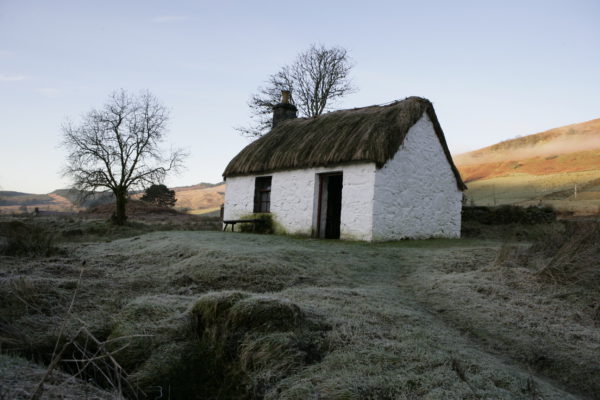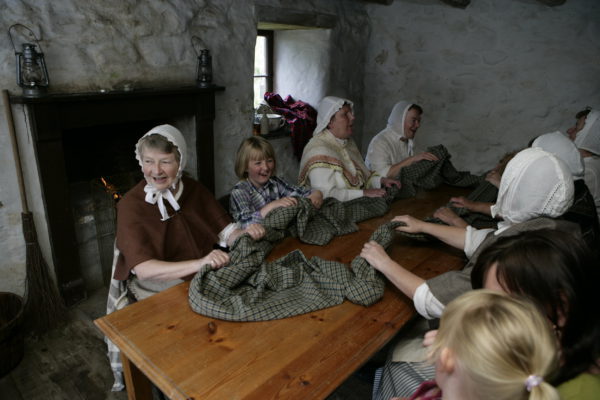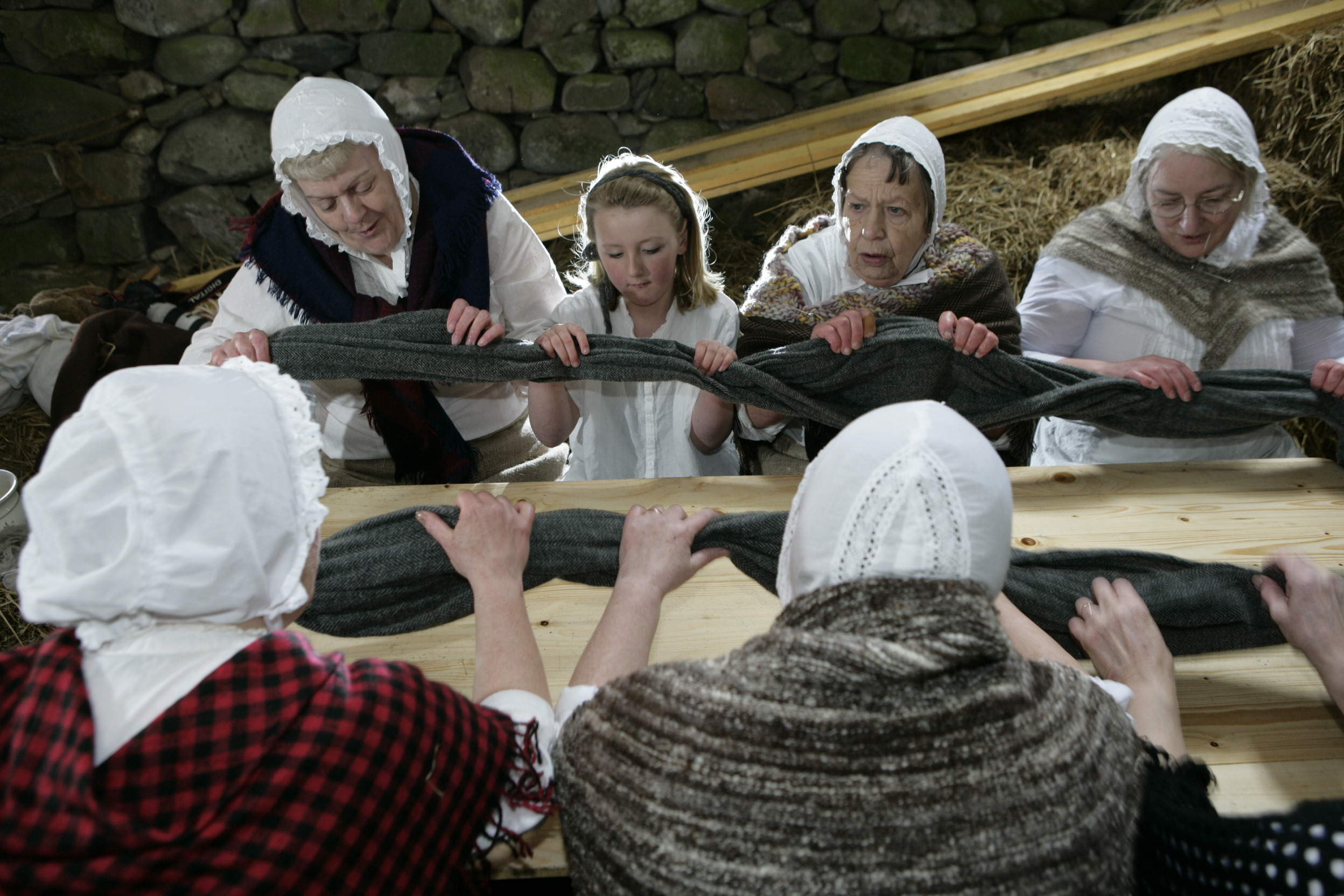Once a month, during most of the summer season, visitors to Auchindrain, Scotland’s last remaining ‘living museum’ township, are in for a real treat when the ladies of Sgioba Luaidh Inbhirchluaidh (Inverclyde Waulking Group) make a tuneful appearance. Together since 2000, this ten-strong band of sisters has performed their traditional Gaelic waulking music at Auchindrain for 15 years and have travelled the length and breadth of Scotland, as well as further afield, demonstrating their impressive harmonies.

Waulking, the final stage in the long and laborious process of producing homespun tweed woollen cloth, is the perfect rhythmical process for a song according to Frances Dunlop who heads up the group: “The genesis of Sgioba Luaidh Inbhirchluaidh was way back in 1981, when I first went to a summer school in Stirling University with Anne Lorne Gillies. I had sung in Gaelic choirs for many years, but over several years under Anne’s guidance I came to appreciate traditional Gaelic song – and my life was transformed! Gradually I became more familiar with waulking songs, but it was a long time before I plucked up courage to suggest to Greenock Gaelic Choir that some of us might sing them together and so the group came into being. Our very first performance was in December 2000 when we had a 10 minute spot at the choir’s annual concert. There are currently ten of us in the group, two of whom, besides myself, are founder members. Most of us hail from Greenock, Port Glasgow, Inverkip and Wemyss Bay in Inverclyde but others come from further afield such as Dunoon and Barrhead. We are always on the look-out to welcome new members and have amassed quite a large repertoire of songs over the years.”
Fulling the cloth

Frances continued: “Waulking or fulling the cloth, was practised widely but we believe that only in Scottish Gaelic culture was it accompanied by singing. It’s a very ancient tradition with some of the songs being centuries old. They’ve been passed on orally and transformed into many differing versions, which adds to the interest but can also be quite frustrating deciding which version we prefer! Most of the songs are loosely structured: in order to make a song last long enough for the work, lines might be imported from another song or perhaps a few lines of improvisation could be thrown in. One woman sings the verse of one or two lines. It seems effortless but takes a lot of skill and practice to get the timing exactly right! The rest join in the chorus, which in the oldest songs are composed of meaningless vocals. Later songs may have some words in the chorus as well. The waulking would begin with a slow song, increasing in speed as the cloth dried, and the women got warmed up. In Uist and Barra, after being waulked the cloth was rolled up, and patted to smooth it out to the accompaniment of a clapping song (oran basaidh) which was a fast, cheerful song, sometimes an improvised ‘pairing off’ song when the names of those present would be linked with local young men.
“Waulking was an important part of female culture, so women wishing to compose a song often adopting the waulking style. The songs come straight from the heart and are full of passion but utterly without sentimentality. Waulking died out a few decades ago but these songs are worth preserving. They need to be ‘worked’ in order to bring them to life. The whole process is very therapeutic. In the songs you can express your every emotion; the hypnotic thumping of the cloth on the table helps to release all your tensions and frustrations and it is very good exercise! In the company of your friends you can have a gossip and talk over problems. It’s great ‘female bonding’ and cheaper than counselling!” added Frances
Auchindrain Historic Township, situated on the A83 between Inveraray and Lochgilphead in Argyll & Bute, is currently operating in ‘winter mode’ until the end of March 2023. Visitors can explore Scotland’s last township from Monday to Friday (10am to 4pm).
For more information visit www.waulk.org and www.auchindrain.org.uk.

